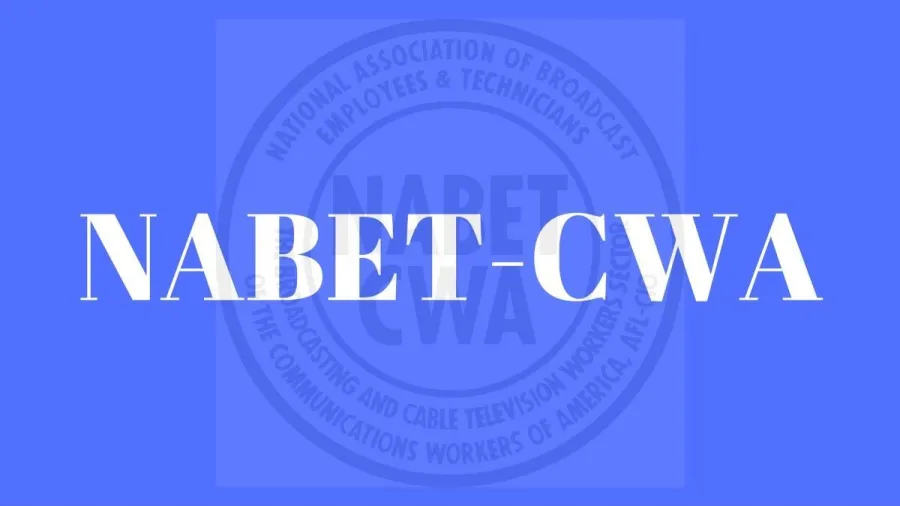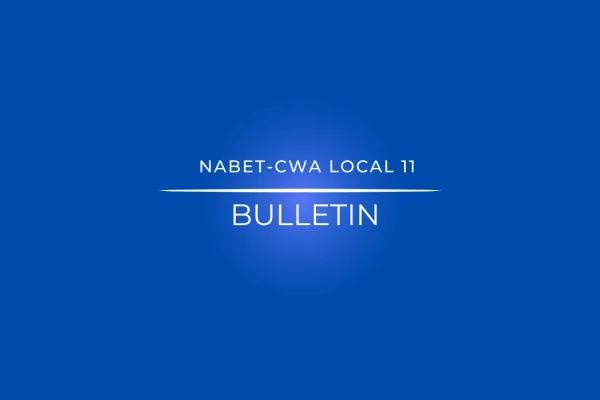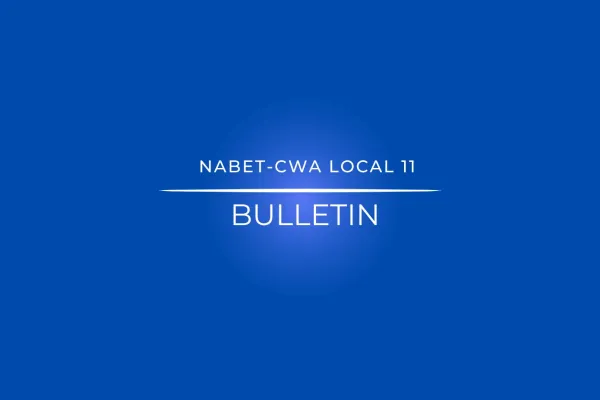COVID-19: 'Workers First' Legislation Summary

Senate Democrats fought for a bipartisan, robust third COVID-19 bill that will immediately bolster our health care response and our economy. Instead of accepting Leader McConnell’s partisan $1 trillion COVID-19 bill, Senate Democrats secured a $2 trillion investment with stronger worker protections, a Marshall Plan for our hospitals, and much more.
Unemployment Insurance: ($260 billion)
Democrats secured a massive investment in the UI program as well as critical reforms to make the program more effective for workers. In the wake of the economic recession caused by the coronavirus the UI program is an essential a long-term lifeline for millions of workers during this crisis.
- Full Paycheck Replacement: $600 increase for every American, which equates to 100 percent of wages for the average American without a paycheck struggling through the Crisis
- Waiving Waiting Weeks: Gets money in people’s pockets sooner by providing federal incentives for states to eliminate waiting weeks.
- Extension of Benefits: An additional 13 weeks of federally-funded unemployment insurance benefits are immediately be made available.
- Expanding Access: Allow part-time, self-employed, and gig economy workers to access UI benefits.
Marshall Plan For Our Health System ($150 billion)
Democrats secured an unprecedented and historic investment for our health care system in its fight against the Covid-19 pandemic. The new $100 billion fund is widely available to all types of hospitals and providers most affected by Covid-19, and it will be available to fund whatever is needed to defeat this virus. This includes:
- Equipment and Infrastructure: Personal and protective equipment for health care workers, testing supplies, increased workforce and training, new construction to house patients, emergency operation centers and more.
- Enhanced Health Investments: Additional funding is also dedicated to delivering Medicare payment increases to all hospitals and providers to ensure that they receive the funding they need during this crisis, and new investments in our country’s Strategic National Stockpile, surge capacity and medical research into Covid-19.
Robust Worker and Transparency Protections on Government Loans
Tough new requirements not included in the McConnell bill have been added to government loans lent to companies.
- No stock buybacks or dividends for the length of any loan provided by the Treasury plus 1 year.
- Restrictions on any increases to executive compensation.
- Protect collective bargaining agreements.
- Real-time public reporting of Treasury transactions under the Act, including terms of loans, investments or other assistance to corporations.
- Prohibition on businesses controlled by the President, Vice President, Members of Congress, and heads of Executive Departments getting loans or investments from Treasury programs.
- Creation of Treasury Department Special Inspector General for Pandemic Recovery to provide oversight of Treasury loans and investments and a Pandemic Response Accountability Committee to protect taxpayer dollars.
- Creation of a Congressional Oversight Commission to enhance legislative oversight of pandemic response.
Small Business Rescue Plan ($377 billion)
- $350 billion in loan forgiveness grants to small businesses and non-profits to maintain existing workforce and help pay for other expenses like rent, mortgage, and utilities.
- $10 billion for SBA emergency grants of up to $10,000 to provide immediate relief for small business operating costs.
- $17 billion for SBA to cover 6 months of payments for small businesses with existing SBA loans.
Protected Over 2 Million Aviation Industry Jobs
- Democrats secured direct payroll payments to keep millions of airline workers on the job and receiving paychecks.
- Airline companies will be prohibited from stock buybacks and dividends for the entire life of the grant plus one year.
- Collective Bargaining Agreements negotiated by workers will be protected.
- Health Care benefits will be expanded for airline contract workers.
Increased Direct Payments to Working Americans
- Democrats fought to double cash payments to the working class Americans from $600 to $1,200
- An additional $500 cash payment is available per child.
- The full payment is available for individuals making up to $75,000 (individual) and $150,000 (married).
- The value begins decreasing and then phases out completely for those making over the full payment income cap.
State and Local Coronavirus Expenditures Fund ($150 billion)
To assist States, Tribes, and local governments that must pay for new expenses related to COVID-19 response.
- $150 billion, with a small-state minimum of $1.5 billion
- Tribal set-aside of $8 billion
Unprecedented Transparency and Accountability
- Real-time public reporting of Treasury transactions under the Act, including terms of loans, investments or other assistance to corporations.
- Prohibition on businesses controlled by the President, Vice President, Members of Congress, and heads of Executive Departments getting loans or investments from Treasury programs.
- Creation of Treasury Department Special Inspector General for Pandemic Recovery to provide oversight of Treasury loans and investments. • Creation of a Pandemic Response Accountability Committee through the Council of Inspectors General on Integrity and Efficiency to enhance government-wide protection for taxpayer dollars.
- Creation of a Congressional Oversight Commission – with subpoena power – to enhance legislative oversight of pandemic response.
Emergency Appropriations ($330 billion, including $100 billion for hospitals and providers mentioned above)
- $16 billion to replenish the Strategic National Stockpile supplies of pharmaceuticals, personal protective equipment, and other medical supplies, which are distributed to State and local health agencies, hospitals and other healthcare entities facing shortages during emergencies.
- $1 billion for the Defense Production Act to bolster domestic supply chains, enabling industry to quickly ramp up production of personal protective equipment, ventilators, and other urgently needed medical supplies, and billions dollars more for federal, state, and local health agencies to purchase such equipment.
- $4.3 billion to support federal, state, and local public health agencies to prevent, prepare for, and respond to the coronavirus, including for the purchase of personal protective equipment; laboratory testing to detect positive cases; infection control and mitigation at the local level to prevent the spread of the virus; and other public health preparedness and response activities.
- $45 billion for FEMA’s Disaster Relief Fund, more than doubling the available funding, to provide for the immediate needs of state, local, tribal, and territorial governments, as well as private non-profits performing critical and essential services, to protect citizens and help them recover from the overwhelming effects of COVID-19. Reimbursable activities may include medical response, personal protective equipment, National Guard deployment, coordination of logistics, safety measures, and community services nationwide.
- $30.75 billion for grants to provide emergency support to local school systems and higher education institutions to continue to provide educational services to their students and support the on-going functionality of school districts and institutions.
- $25 billion in aid to our nation’s transit systems to help protect public health and safety while ensuring access to jobs, medical treatment, food, and other essential services.
- $10 billion in grants to help our nation’s airports as the aviation sector grapples with the most steep and potentially sustained decline in air travel in history.
- $3.5 billion in additional funding for the Child Care Development Block Grant to provide child care assistance to health care sector employees, emergency responders, sanitation workers, and other workers deemed essential during the response to the coronavirus.
- More than $7 billion for affordable housing and homelessness assistance programs. This funding will help low-income and working class Americans avoid evictions and minimize any impacts caused by loss of employment, and child care, or other unforeseen circumstances related to COVID-19, and support additional assistance to prevent eviction and for people experiencing homelessness
- More than $6.5 billion in Federal funding for CDBG, the Economic Development Administration, and the Manufacturing Extension Partnership to help mitigate the local economic crisis and rebuild impacted industries such as tourism or manufacturing supply chains.
- $400 million in election assistance for the states to help prepare for the 2020 election cycle, including to increase the ability to vote by mail, expand early voting and online registration, and increase the safety of voting in-person by providing additional voting facilities and more pollworkers.
- $2 billion in funding to strengthen response capacity and support tribal governments: $1.03 billion to the Indian Health Service to support tribal health care system response efforts; $100 million more for the USDA Food Distribution Program for Indian Reservations; $453 million to assist tribes through the Bureau of Indian Affairs; $69 million to help tribal schools, colleges and universities through for the Bureau of Indian Education; and $300 million more to the HUD Indian Tribal Block Grant program.
- $1 billion to recapitalize Amtrak after steep ridership declines related to the outbreak. This will keep thousands of Amtrak employees employed, and ensure America’s intercity passenger rail stays on track, continuing service in the Northeast and nationwide.
Student Loan Relief
- To alleviate the pressure of student loan costs during this crisis, Senate Democrats fought for the inclusion of tax relief encouraging employers to implement student loan repayment programs. This provision will exclude up to $5,250 in qualifying student loan repayments paid by the employer on behalf of the employee from income for income tax purposes.
NABET-CWA/NBCU - VERSANT NEGOTIATONS BULLETIN #2
NABET-CWA Local 11 Bulletin - Executive Board Elections



